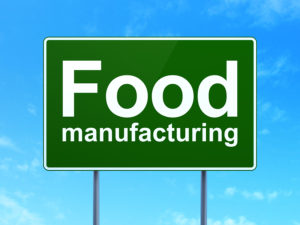ERP Systems Improve Food Manufacturing Processes


For companies in the food manufacturing business, IWI Consulting offers a whitepaper entitled Improving Transparency in Food Manufacturing.
Ways in Which ERP Benefits the Food Manufacturing Process
Quality assurance professionals and quality analysts know that data fuels many of their decisions. They rely upon accurate, timely data, scientific facts, and knowledge of their industry’s laws and regulations to produce high-quality products that are safe for the public. Having accurate data is vital for food manufacturers.
Data integrity, consistency, and accuracy are all improved thanks to ERP systems for food manufacturing companies. Such information can help you predict problems and take corrective measures to prevent them. Here are more ways in which ERP benefits the food manufacturing industry.
- Accurate data: Food manufacturing depends upon accurate data for both quality and consistency. Centralized data and careful selection of those approved to input data improve both accuracy and quality. When specific employees are responsible for data input, they can be trained to ensure accuracy and competency and avoid mistakes. Data throughout the ERP system can be centralized, stored, and shared company-wide. Cloud-based ERP systems and mobile ERP make it easy to share real-time data and information, no matter where your employees are traveling or working.
- Fast response to potential problems: Real-time data also provides insights into what is happening now. If your quality assurance team spots a problem, they can take swift, corrective action to prevent problems from spreading. For example, if tests on ingredients indicate the presence of potential food-born pathogens, the lot can be stopped in the manufacturing process before it contaminates machinery or spreads into finished goods. This information can be discovered and shared quickly, thanks to real-time data stored in the ERP system.
- Manage complex regulations: Food manufacturing is fraught with complex regulations and requirements to ensure the public’s safety when purchasing and consuming products. These complicated rules can be challenging to track and implement, especially when changes occur. Fortunately, ERP for food manufacturing can be set so that automated alerts are sent when audits, inspections, or other important events are pending. You can also update systems with new information, as it becomes available, to share it throughout your organization.
- Track and document important events: Lastly, you can track, document, and share responses to important external events by using an ERP for food manufacturing system. Such systems can help you maintain accurate records of public complaints or problems and your company’s responses to them. You can then easily run reports for external agencies and other regulatory bodies seeking such data.
- Single view: When all your company’s data is contained in a centralized, easily accessible system, there’s a “single view” of everything that’s going on throughout the company. Departments no longer need to rely upon specific reports or chunks of information obtained from others. Data can be shared instantly so that everyone can use it for their work. Instead of disparate parts, everyone is working from the whole.
Sage EM (formerly known as Sage X3), also called Sage EM (formerly known as Sage X3), is a system that supports shared, collaborative business information. The system features centralized data, integrated business processes, mobile access and more, to provide a robust yet scalable suite of business productivity tools. For food manufacturers, it’s a good tool to enhance collaboration and improve data visibility throughout your organization.
Learn More About ERP for Food Manufacturing
IWI Consulting Group offers businesses assistance choosing the right Sage products for their needs. We can help you convert your company’s systems into a single, integrated solution that supports your business and enhances productivity.
Contact IWI Consulting today for a consultation. Call 1-866-916-3851.

